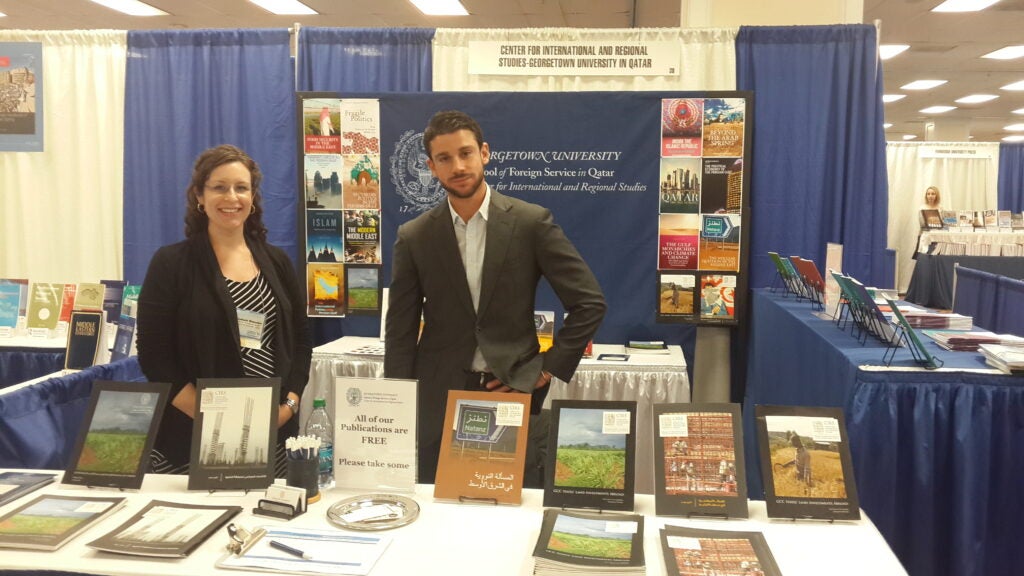CIRS Travels to the Middle East Studies Association (MESA) Conference in Washington, DC

Members of CIRS traveled to attend the Middle East Studies Association (MESA) Conference in Washington, DC on November 22-25, 2014. Zahra Babar, Associate Director of Research at CIRS delivered a paper titled, “Arabs and Asians in Qatar: Who Does the Dirty Work?” as part of a panel on “Monarchy and the Modern: New Research Findings.” This paper examines two particular policymaking tools widely used across the region, namely the kafala—or worker-sponsorship system—and public sector employment of citizens, and assesses their impact on Qatar’s demography. Both the kafala and public sector employment have developed out of the rentier bargain in Qatar, and are means by which the government preserves the privileges of its citizen population. This paper posits that these have been state choices not only to preserve the economic satisfaction of the citizen population, but also to ensure political and social stability. This paper makes two arguments. Firstly, the paper claims that in Qatar the kafala has lost its political utility, as it no longer serves the interests of the state in terms of being an efficient means of allocating rentier wealth to the citizenry. Secondly, public sector employment as a result of its role in providing “demographic protection” to Qatari citizens, will continue be an effective distributional tool that serves the political interests of the state.
CIRS also staffed an exhibition booth as part of MESA’s Book Bazaar where CIRS staff disseminated the latest publications in both English and Arabic and spoke to conference participants about ongoing research initiatives.
On November 24, 2014, CIRS held a reception inviting a number of scholars and researchers associated with CIRS projects and initiatives as well as Georgetown University in Qatar alumni.